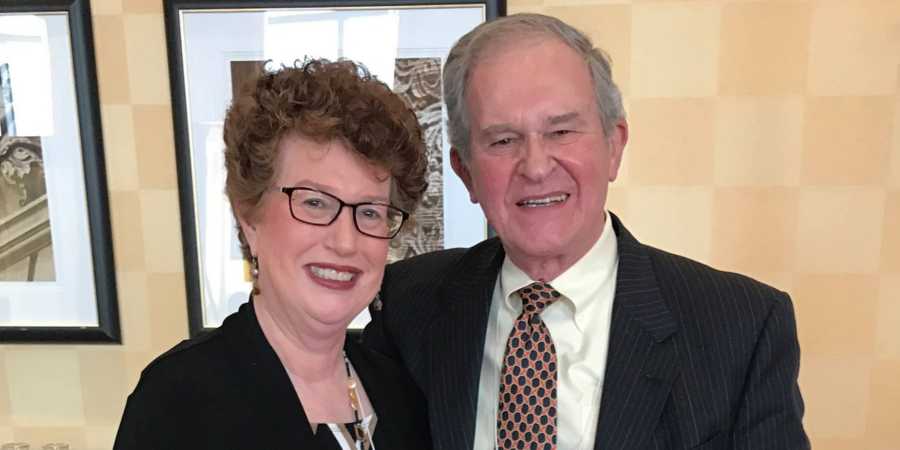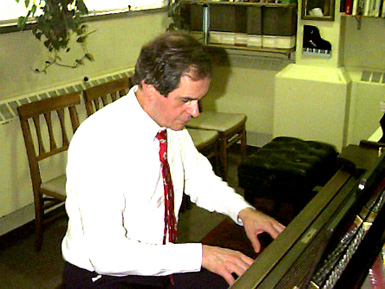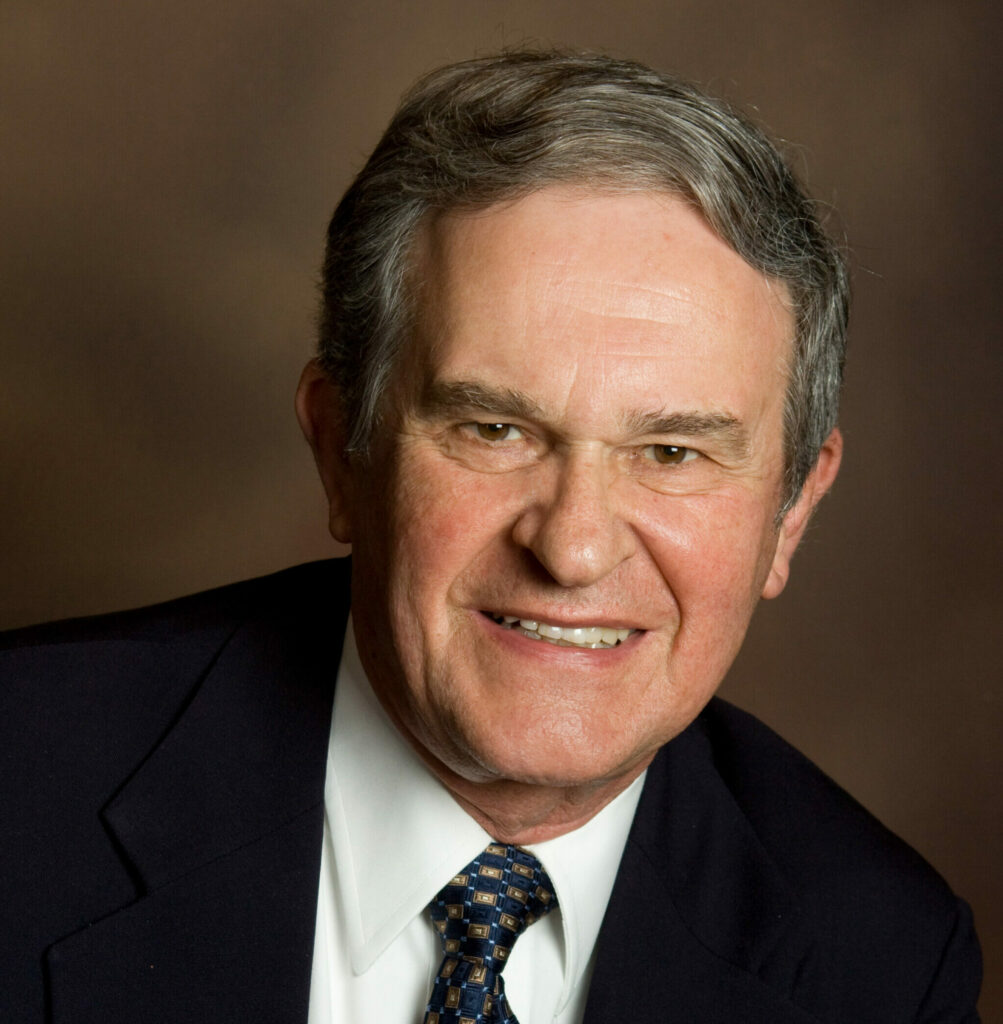Join us for our first webinar of the season titled “The Life Saving Work of Teachers,” presented by Marvin Blickenstaff on Wednesday, September 27, 2023 at 11:00am EDT. Click here to register!

Naegeli van Bergen Metcalf was my first college piano teacher and a beloved mentor. She left Wesleyan College after my freshman year to get married, and we stayed in touch throughout the remainder of her teaching years. So, during my junior year, she was in touch and encouraged me to go to the University of North Carolina at Chapel Hill to study with her good friend from Indiana University for my master’s degree. He was a new young teacher, Marvin Blickenstaff, who had just joined the faculty there. We didn’t have the internet or publicity booklets from the department, but everything I heard sounded wonderful.
My audition date finally arrived in December 1971. The scuttlebutt had alerted me to the fact that noted pianist and author William S. Newman was on the musicology/piano faculty there and that I would need to play by ear for him in my interview and that Marvin Blickenstaff was debonair and handsome, and also a very kind individual. My interest was piqued. In preparation for the audition on that day, I warmed up on the stage of Hill Hall, working simultaneously to bolster my confidence. During some moments of concentrated warm up, the sought-after teacher himself walked briskly down the center aisle toward me and introduced himself. Yes, it was Marvin Blickenstaff, kind, affirming and encouraging, but absolutely nothing like I expected from the person I requested to be my next teacher. He turned out to be a pivotal piano instructor for me!
Marvin is a person with such a large heart, still capable of giving unimaginable inspiration to a piano student of any age, to piano teachers everywhere, to colleagues, or to anyone who needs a pep talk.
That day Mr. Blickenstaff and the other two male faculty, all three young and engaging, made me feel quite welcome, and Dr. Newman asked me to play “Home on the Range” in A-flat during my graduate school interview. Thus began a long and life-changing relationship with Mr. Blickenstaff and Dr. Newman, in the fall of 1972.
As an applied piano student between fall 1972 and spring of 1974, my lessons were filled with dedicated and inspired teaching, concern for my total well-being as well as my playing, laughter, a lot of detailed teaching, and a focus on listening, technique, and tone. At that juncture in time, Marvin was a young graduate of the Indiana University School of Music. My first semester repertoire was huge, I seem to remember it consisting of two full recital programs. All I knew was that it was a lot, and was I ever motivated. He held us to the highest artistic standards, and we rose to meet the bar he set.
He was motivated too, along with us. He taught long hours, and numerous extra lessons. We reveled in his discussions of Brahms’ piano music and Beethoven sonatas. His students became his family, and he and his wife, Sara Faye, treated us to dinners and parties in their lovely home. Our studio bonded, and many of us have remained close to this day, even after we spread all over the country.The Blickenstaffs lived close to campus, and it worked well for Marvin to ride his bicycle to school and back home each day, even on those dark nights after recitals and his late-night practicing. He was committed to his health, but even more committed to his students. For much of the time I knew him, the hour of his studio class was on “Friday at 4” and the meeting was set in stone, the highlight of our piano weeks. We loved playing for each other and grew to support our colleagues unconditionally.
An important message that I received from Marvin and his two equally engaging piano faculty colleagues was the importance of collegiality among a piano faculty. He, Michael Zenge, and Francis Whang were mutually supportive of each others’ playing and of all students within the piano department. It made for a strong and healthy model of collegial support among faculty members at a college or university, that permeated all three of the studios and the students’ philosophies as they eventually moved on and grew into faculty members and opened independent piano studios.
Marvin’s faculty recitals were “the” event of the season for his students and the piano community in Chapel Hill at large. Marvin walked briskly onto stage in a recital, smiling and greeting everyone warmly. His playing had them in the palm of his hands at the end of the first two lines of whatever was programmed. Listening to him play, one lost track of time in his beautiful and gripping performances! As you probably know by now, he still has the movie-star-like persona and presence.
In Chapel Hill, North Carolina I also had the chance to listen on occasion to his conversations with his inspiring colleagues Lynn Freeman Olson and Louise Bianchi as they wrote their legendary piano method Music Pathways.

I heard about the reading approach they used, their counting system, the off-the-bench activities they created for the children. What a distinguished trio of educators creating educational materials during their formative years! Thank you, Marvin, for sharing so much of yourself with all of us as students.
That was over forty years ago! Marvin moved away from Chapel Hill and continued to teach at Goshen College in Indiana. As that transition occurred, I came to know him as a quintessential workshop presenter. In essence, he was evolving into a national teacher of teachers, inspiring hundreds in his workshops—and there, too, he provided a strong influence on so many of us. It was his habit to stay in close touch with all of us, talking by phone, inspiring us, reminding us to be dedicated and work hard—as he always set the highest bar for all of us, all the while teaching a full load. Each year around Christmas, he would send a multi-page, inter-generational studio newsletter catching everyone up on his students and our colleagues’ “comings and goings.” It became a highlight of the season, catching up on the families, performances, locales, high and low points, and pulling us together still again as dedicated young professionals, now striving to make a difference in our own students’ lives. One could never have asked for a better role model.
As a teacher to this day, Marvin is a person with such a large heart, still capable of giving unimaginable inspiration to a piano student of any age, to piano teachers everywhere, to colleagues, or to anyone who needs a pep talk. His teaching, mentorship, and love for his students, colleagues, and for teachers throughout the profession is legendary. Dare I say thousands of teachers and students have been touched in the most positive ways by his kindness, thoughtfulness, talent, and selfless giving. Thank you, dear Marvin for being you and for nurturing the largest circle of friends, teachers, students, and colleagues imaginable throughout this country and all over the world! Thank you for always caring. And by the way, I imagine you probably still ride your bike daily, and I know you still practice late at night.


The Marvin Blickenstaff Institute for Teaching Excellence
In 2023, the Frances Clark Center established the Marvin Blickenstaff Institute for Teaching Excellence in honor of his legacy as a pedagogue. This division of The Frances Clark Center encompasses inclusive teaching programs, teacher education, courses, performance, advocacy, publications, research, and resources that support excellence in piano teaching and learning. To learn more about the Institute, please visit this page. We invite you to make a donation in honor of Marvin’s 88th birthday (May 19).
OTHER RESOURCES YOU MIGHT ENJOY
- PIANO MAGAZINE: A Tribute to Marvin Blickenstaff and his Pedagogical Legacy by Sara Ernst, Jane Magrath, Karen Zorn, Joel M. Harrison, Marianne Williams, Zack Kleiman, Henry Banta, Anya Smith and Nina Austria
- VIDEO: Technique Q&A with Marvin Blickenstaff
- VIDEO: Inside the Studio with Marvin Blickenstaff
- WEBINAR: A Closer Look at Piano Literature for Teaching and Performance with Jane Magrath and Marvin Blickenstaff
- PIANO MAGAZINE: Winter 2022: Questions & Answers by Jane Magrath
- Use our search feature to discover more!